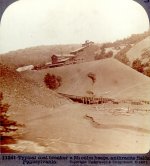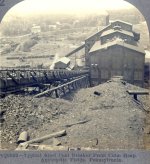David
Active member
- Joined
- Jan 21, 2008
- Messages
- 1,835
http://www.northcentralpa.com/feeditem/2010-11-22_dep-investigating-13000-gallon-frack-water-spill-lycoming-county
The accidents keep lining up it seems... I can only wait until the new governor gets in and opens the whole thing up again.
Dave's wife
The accidents keep lining up it seems... I can only wait until the new governor gets in and opens the whole thing up again.
Dave's wife






